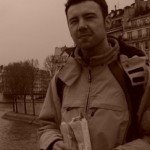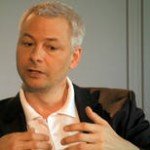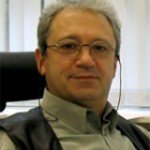Segregation and Integration in Music and Language
 Good morning, dear reader. A couple of years ago I had the good fortune to work with Sebastian Finkel, a very promising PhD student currently working at the University of Tübingen in Germany. He recently helped to organise a conference at his University called “Segregation and Integration in Music and Language“. And because he is so lovely he agreed to provide a summary of some of the key conference points for you and I.
Good morning, dear reader. A couple of years ago I had the good fortune to work with Sebastian Finkel, a very promising PhD student currently working at the University of Tübingen in Germany. He recently helped to organise a conference at his University called “Segregation and Integration in Music and Language“. And because he is so lovely he agreed to provide a summary of some of the key conference points for you and I.
So without further ado, I give you a report on SIMAL2012 by Sebastian Fikel:
Music and language share common neural resources; this is sometimes quit obvious, for example: the same muscles (abdominal, intercostal, extrinsic and intrinsic laryngeal muscles, etc.) are used for speaking and singing and therefore similar sensorimotor areas are involved (Callan et al., 2006; Riecker et al., 2000). However, we also know that the involvement of other areas can vary very much depending on the modality of the task, e.g. as music or language task. (Wildgruber et al., 2000; Ackermann and Riecker, 2004).
 To disentangle this complex interaction of task modality, task requirements and involved neural resources and networks we (Fabian Tomaschek, Sebastian Finkel, Rossitza Draganova and Lena Classen) initiated a workshop called “Segregation and Integration in Music and Language”. The primary idea was to bring together researchers from the fields of language and music cognition and enhance exchange of current results and ideas.
To disentangle this complex interaction of task modality, task requirements and involved neural resources and networks we (Fabian Tomaschek, Sebastian Finkel, Rossitza Draganova and Lena Classen) initiated a workshop called “Segregation and Integration in Music and Language”. The primary idea was to bring together researchers from the fields of language and music cognition and enhance exchange of current results and ideas.
Moreover we invited 3 Keynote speaker (Stefan Koelsch, Christo Pantev and Erich Schröger), who are eminent researchers in their field, as well as 4 speakers (Daniela Sammler, Carsten Wolters, Mathias Sharinger and Ingo Hertrich) who gave talks especially dedicated to newly develop neuroscientific and computational methodologies in music and language research.
 The workshop lasted two days, starting Friday morning with the usual registration. The first session started with a keyote given by Stefan Koelsch, Professor at the Free University of Berlin talking about share neural network underlying the processing of semantics in music and language. He argued, that the eletrophysiological signals N5 and N400 represent the processing of musical meaning. Referring the N5 to intra-musical meaning and the N400 to extra musical meaning (iconic, indexical and symbolic sign quality).
The workshop lasted two days, starting Friday morning with the usual registration. The first session started with a keyote given by Stefan Koelsch, Professor at the Free University of Berlin talking about share neural network underlying the processing of semantics in music and language. He argued, that the eletrophysiological signals N5 and N400 represent the processing of musical meaning. Referring the N5 to intra-musical meaning and the N400 to extra musical meaning (iconic, indexical and symbolic sign quality).
After each keynote, 20 minute short talks followed which where choosen from about 50 applicants. Each session was in a way organised that themes of the keynote, the short talks and the technical talk, fitted into a bigger frame (e.g. music, language, pure tones). We tried to have a break at least every 90 minutes, to keep the attention up and give the possibility to exchange very current thoughts about the last talks. Furthermore, each session included some methodological and technical oriented talks giving insight into recent methods and developments.
 The second keynote was given by Christo Pantev, Professor from the University of Münster. He explained the possible negative results of auditory plasticity which can lead to tinnitus. He showed data from his lab how this maladaptive mechanism could possibly be alleviated by customized music training which is based on lateral inhibition and plasticity of the human auditory cortex. First results demonstrate that this stratgy is capable of reducing tinitus related neural activity and reducing subjective tinnitus perception.
The second keynote was given by Christo Pantev, Professor from the University of Münster. He explained the possible negative results of auditory plasticity which can lead to tinnitus. He showed data from his lab how this maladaptive mechanism could possibly be alleviated by customized music training which is based on lateral inhibition and plasticity of the human auditory cortex. First results demonstrate that this stratgy is capable of reducing tinitus related neural activity and reducing subjective tinnitus perception.
 The last keynote was giving on saturday morning by Erich Schröger, Professor from the University of Leipzig. He presented his conceptual model termed the Auditory Event Representation System (AERS). This model tries to combine the models of auditory scene analysis and event/deviation detection into a common framework. He argued this could be achieved in predicting upcoming events on the basis of neural representations describing temporal regularities.
The last keynote was giving on saturday morning by Erich Schröger, Professor from the University of Leipzig. He presented his conceptual model termed the Auditory Event Representation System (AERS). This model tries to combine the models of auditory scene analysis and event/deviation detection into a common framework. He argued this could be achieved in predicting upcoming events on the basis of neural representations describing temporal regularities.
Although this was only a very brief and personal review of the three keynote talks of the conference, hopefully it will arouse some interest making a possible second music and language workshop in 2014 even more successful.
I am very happy that Vicky gave me the chance to give a short conference review about the „Segregation and Integration in Music and Language“ workshop here at the University of Tübingen organized.
Thanks Sebastian, much appreciated! 🙂